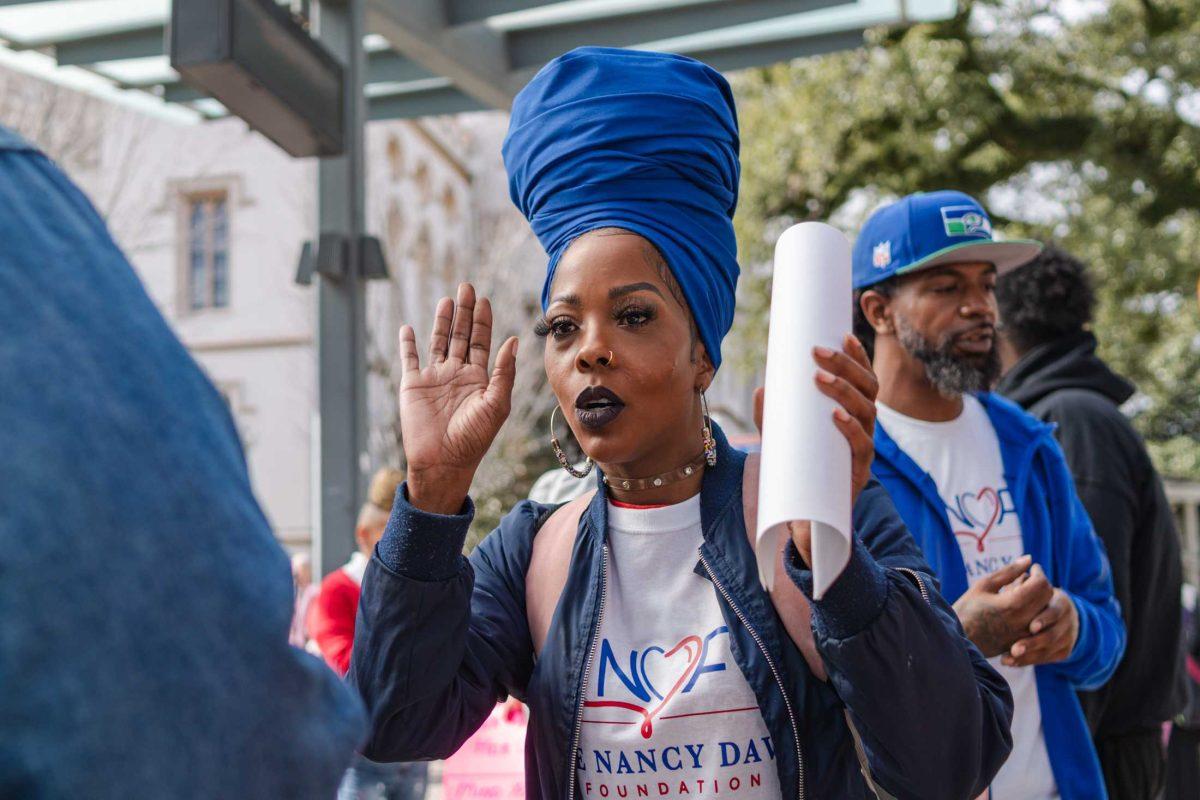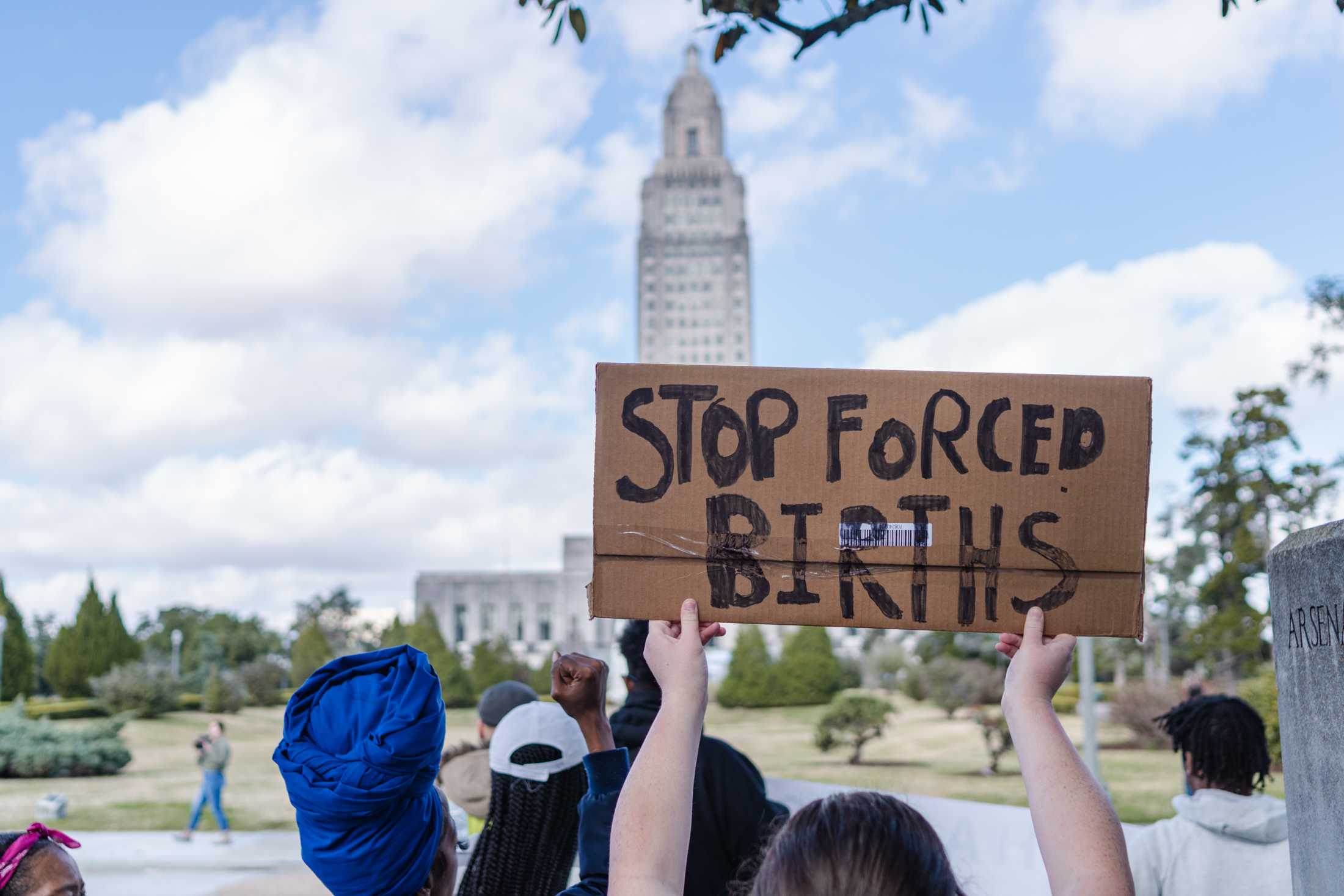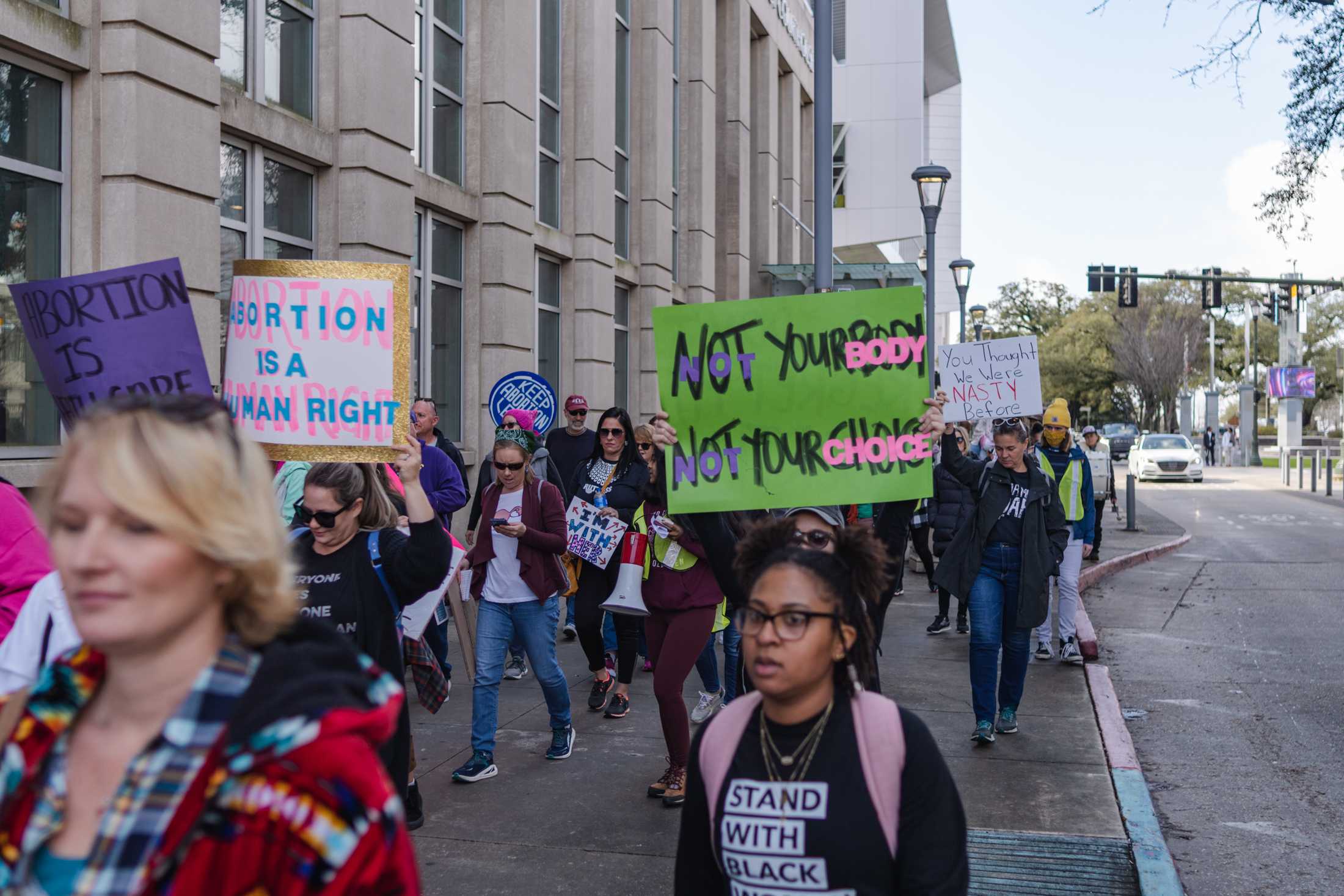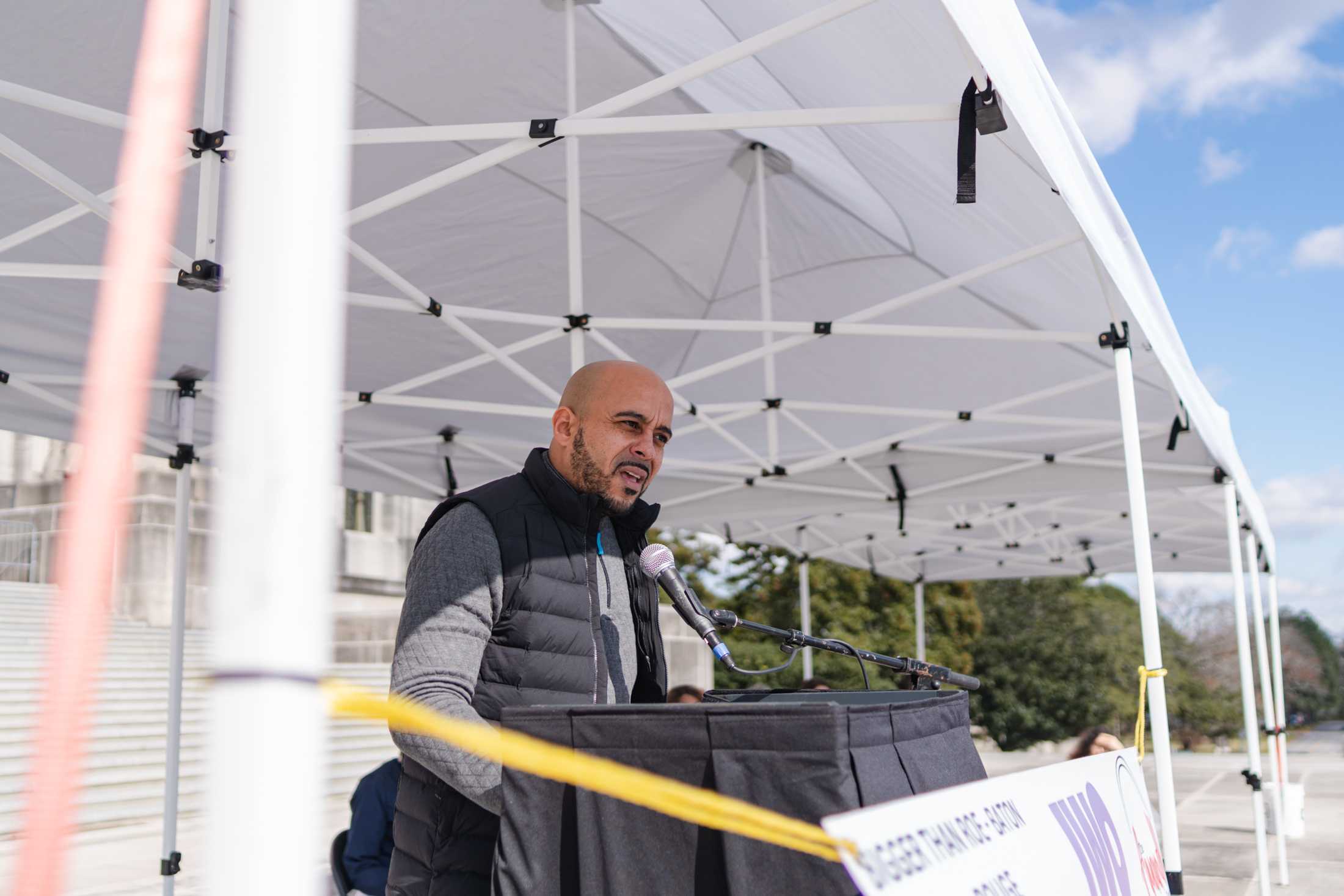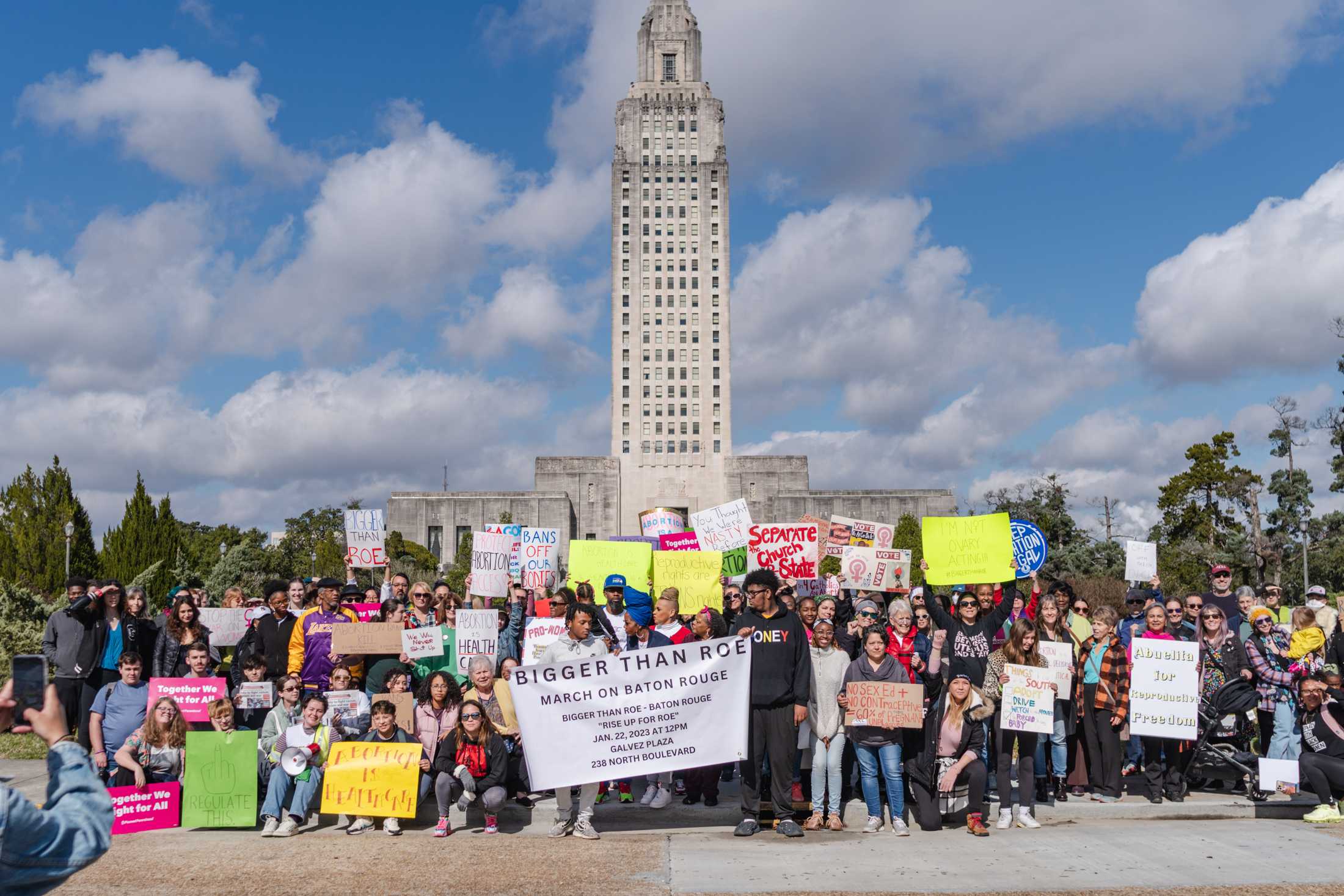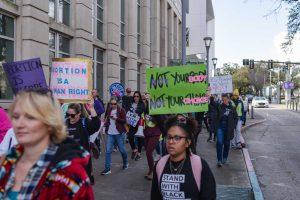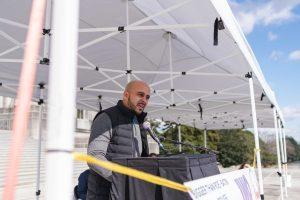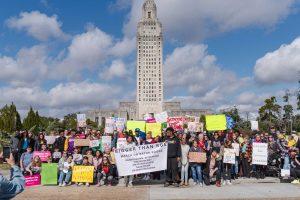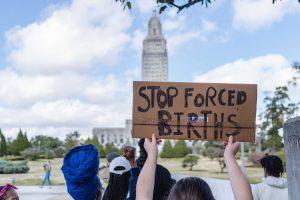Lifelong Baton Rouge resident Nancy Davis and her fiancé were overjoyed when they saw her positive pregnancy test in the summer.
Then she found out at her first doctor’s appointment that her baby would be born without a skull and wouldn’t survive. Just a week earlier, a trigger law had gone into effect in Louisiana, banning abortions except in cases where the pregnant person’s life is in danger or if the baby won’t survive.
After initially saying they could perform an abortion, Davis’ doctors changed their minds. So she went to New York instead.
“I was being forced to carry my baby to bury my baby,” Davis said.
Davis led a march of about 150 abortion rights protesters Sunday, on the 50-year anniversary of Roe v. Wade, from Galvez Plaza on North Boulevard to the capitol steps. Living in a state with a near-total abortion ban, they looked to the anniversary as a reminder of what they’ve lost.
The energetic crowd roared through downtown’s quiet streets with chants and hand-made protest signs. A drummer marched among the crowd, filling moments between words with beats.
A dozen volunteers wore reflective vests, guiding protesters through crosswalks as silent cars sat stalled at lights. Two of them were LSU Feminists in Action officers Myrissa Eisworth and Annie Sheehan-Dean.
“Abortion is…” Sheehan-Dean, a history, political science and gender studies junior, yelled to the crowd through a bullhorn.
“Healthcare!” the protesters called back.
Speakers at the Capitol advocated for abortion rights and encouraged attendees to continue fighting despite the Supreme Court’s ruling. Among the speakers was Kaitlyn Joshua, a Baton Rouge native and community organizer who was denied care at two ERs as she suffered a miscarriage, according to NPR.
“Louisiana, this is our moment. This is our chance, a chance, women of Louisiana – from the piney woods of Shreveport to the bayous of Houma across the river to Port Allen down to the Mississippi and New Orleans – to vote. Demand change. Never stop fighting for what is just and for what is right,” Joshua said.
Stacey Howard, who helped Davis organize the march, traveled from her home in New York City to protest in Baton Rouge. She said she had her own abortion when she was 27.
“Every state deserves to have the same access that New York has,” Howard said. “If I hadn’t had that access, my life would have been extremely different. I would have been an unwilling and unprepared mother.”
Howard said she is curating a book of women’s abortion stories to emphasize the importance of reproductive healthcare and break the stigma tied to abortion.
State Sen. Royce Duplessis spoke to the crowd about his own great-grandmother, who he said died after she performed a “coat hanger abortion” on herself around 125 years ago.
“That’s inhumane, unacceptable – not in 2023,” Duplessis said. “I will not stand for it. We will not stand for it. Together, however long it takes to restore the rights of women, we’re going to do it right here in this statehouse.”
Abortion came under a near-total ban in Louisiana in June when a trigger law went into effect after the U.S. Supreme Court overturned Roe v. Wade, the ruling that had largely protected abortion access across the country since 1973.
Louisiana’s abortion law doesn’t include exceptions for rape or incest.
Lack of guidance from the Louisiana Health Department and threats from Attorney General Jeff Landry have left doctors, faced with up to 15 years in prison for performing an abortion, nervous to treat patients who fit the stated exceptions or are experiencing miscarriages, according to local and national media reports.
Two days before the Baton Rouge rally, thousands of anti-abortion rights protesters gathered at the annual March for Life in Washington, D.C., rallying to end the practice nationwide. Among the protestors was Steve Scalise, the U.S. House majority leader from Louisiana’s first district.
“Boy, did we get a huge victory just a few months ago when Roe was overturned, but as you all know, that’s only the end of the first phase of this battle,” he said to the crowd in a video posted to his YouTube channel.
Meanwhile, Duplessis called for Louisiana’s abortion law to be repealed in his Sunday speech, where he was met with applause from the crowd.
For Davis, the fight is personal.
“Today, which should have been the 50th anniversary of the passage of Roe v. Wade, I am reminded of what was stolen from me last June – the power to make my own personal decisions about my body, my family and my future,” Davis said.



